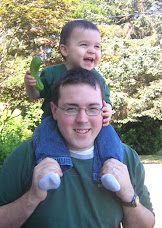7:21-22 "For from within, out of the heart of men, proceed the evil thoughts, fornications, thefts, murders, adulteries, deeds of coveting and wickedness, as well as deceit, sensuality, envy, slander, pride and foolishness.
Jesus expounds on how it is the sinful root of man that defiles man, not dirty hands.
Well, this would give most unbelievers fits (if they could perceive what Jesus is saying here). Let me summarize: All the bad things that happen in the world, happen because man is inherently evil. Jesus didn't say "for from within the family, out of the influences of one's parents, proceed evil thoughts, etc..." or "out of the pressures of the world..." or "out of the faulty school system..." Nope. The source is you, me, that guy you're thinking of right now, everybody.
I took a class in college entitled "The Holocaust: History and Memory". Talk about a depressing 10 weeks. One of the books we read that has caused quite a stir in the realm of Holocaust studies is "Ordinary Men" by Christopher R. Browning (HarperPerennial, 1993) . It details the exploits of Reserve Police Battalion 101, a sort of "national guard" type group brought up out of Germany to assist the Nazi SS. What makes this book so disturbing is that the men of this group were middle-class, middle-aged, and came from a variety of blue and white collar jobs. They were, for all intents and purposes, ordinary. They also murdered thousands of Jews during WWII.
There are many historians that had tried to paint the Jewish genocide as being perpetrated by a group of mentally imbalanced individuals (the Nazi party), or well-meaning pawns, forced to do the unthinkable by said imbalanced individuals. This book, however, shows no abnormal imbalance prior to the war, and no coercion to commit murder. They just did it on their own. In many cases, they seemed to enjoy it.
My problem with the book was that Browning fell short on his conclusion. He writes
"What, then, is one to conclude? Most of all, one comes away from the story of Reserve Police Battalion 101 with great unease. This story of ordinary men is not the story of all men. The reserve policemen faced choices, and most of them committed terrible deeds. But those who killed cannot be absolved by the notion that anyone in the same situation would have done as they did. For even among them, some refused to kill and others stopped killing. Human responsibility is ultimately an individual matter." (p 188)
He later goes on to state that these men acted out of an assumption of what would be best for their careers and the good of the collective. I came away with a different perspective.
I would propose that these men were put in a situation stripped of the blessing of God's law and the power of the collective conscience (which is also a gift from God). Essentially, they were put in a moral vacuum; no looming judgment, no consequences. And in a moral vacuum, they resorted to what man is inherently prone to do - evil. I do hold that anyone in the same situation (without the Holy Spirit and a regenerated heart) could and probably would start killing innocent people. This was a crystal clear case for sin nature when I read this book. Unfortunately, Browning never got that far; and when I made this point in class, I got quite a few funny looks. No one wanted to consider that these kind of evils were lurking inside them.
I hope this gives you an idea of what is in the heart of those that don't know Christ. It is as ugly as it can get, and it only filtered by centuries of moral tradition formed by God's law and his gift of conscience upon man. Take that idea and turn it into a passion to deliver the only thing that can cleanse and transform such wretchedness into pure, glorious, regenerated light... the gospel of Jesus Christ.
Lord, help me to be aware of the leftover resonance of my old sin nature. Help me to reject those evils and cling to what is good. Help me to recognize just how much the hearts of the lost are mired in evil. Let that drive me to share the gospel that frees us from our own evil.
Thursday, February 28, 2008
Subscribe to:
Post Comments (Atom)

No comments:
Post a Comment